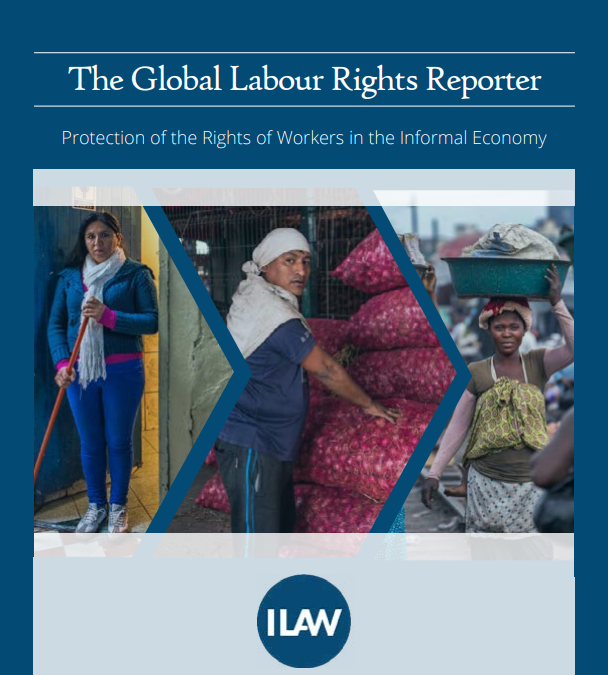Workers in the informal economy, with assistance from legal advocates, have won protections and respect for their rights at work through a variety of legal strategies, both within and outside of labor law.
In the latest issue of the Global Labour Rights Reporter, case studies highlight the ways workers and their advocates have been fighting to ensure protections on the job in the informal sector, and the complications that arise from these efforts.
The journal, a project of the Solidarity Center’s International Lawyers Assisting Workers (ILAW) Network, is a forum for labor and employment law practitioners who grapple with the legal and practical issues that directly affect workers and their organizations. Articles feature migrant domestic workers in the Gulf, waste pickers in Colombia, digital platform workers in Brazil, agricultural workers in Jordan and street vendors and transport workers globally. There, unions and other worker representative organizations are developing laws and policies to ensure informal workers receive the same social protections that formal workers enjoy.
The International Labor Organization estimates that 61 percent of the world’s workers are in the informal economy—approximately 2 billion workers worldwide. They have been consistently excluded from legal recognition and protection, often due to deliberate policy choices driven by discrimination based on race, caste, sex, gender, ability, age, migration status and more. The number of informal workers has only increased during the COVID-19 pandemic as businesses closed and governments fell short in creating policies that fostered formal job creation.
“[Is] labor law the only solution to informality? The answer is no, though this does not mean that labor law concepts cannot be helpful in shaping solutions,” according to Jeffrey Vogt, Solidarity Center’s director of rule of law and chair of the ILAW Network, and Marlese von Broembsen, law program director for Women in Informal Employment: Globalizing and Organizing (WIEGO), in the journal’s opening note. Advocating for coverage by labor law might be an effective strategy where workers in the informal economy are rendering a personal service for another. However, in cases where there is no notional employer, workers have adopted other strategies, including to negotiate agreements with municipal authorities to be afforded certain rights and/or be included in protection schemes, or engage in constitutional or human rights litigation.
Previous issues of the journal focused on access to labor justice and accountability and remedy in global supply chains. All issues are available in English, French and Spanish.

